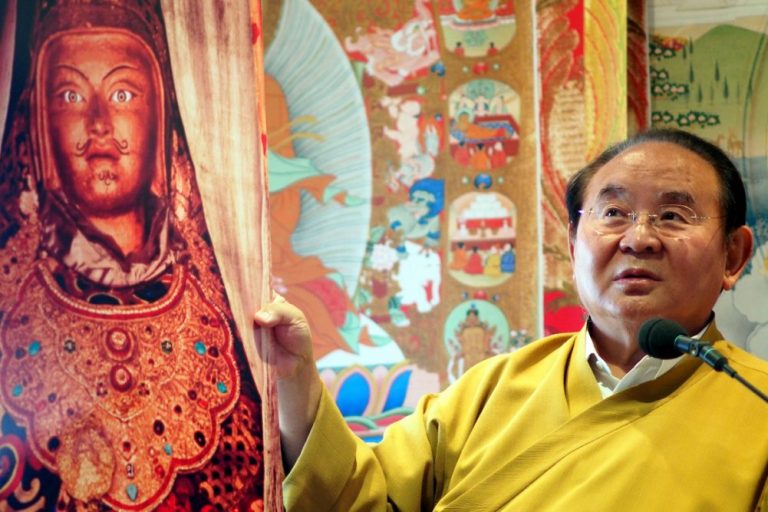Nothing is permanent, so everything is precious. Here’s a selection of some happenings—fleeting or otherwise—in the Buddhist world this week.
Dalai Lama Meets with #MeToo Survivors
His Holiness the 14th Dalai Lama agreed to meet with four survivors of sexual abuse by Tibetan Buddhist teachers during his trip to the Netherlands. Earlier in the week, 12 victims of sexual abuse from various communities wrote and circulated a petition calling for the meeting, which gathered more than 1,000 signatures. Organizing under the banner #MeTooGuru, the petitioners called for the Dalai Lama to hear their “compilation of survivors’ testimonies in person,” to hold “frequent dialogues” on sexuality and sexual abuse, and to “reaffirm publicly that Buddhist teachers . . . are liable to criminal prosecution and civil action.” Although the Dalai Lama is considered to be the spiritual representative of Tibetan Buddhism and his voice is influential, his authority is limited. His support would be an important public relations victory, but would not ensure concrete changes to Buddhist institutions around the world.
Report Confirms Abuse by Sogyal Rinpoche
The international network of practice centers Rigpa has released a report confirming many of the abuse allegations against their founder, Sogyal Rinpoche. In August 2017, Sogyal Rinpoche resigned from the organization a month after several senior teachers publicly accused him of sexual, physical, and psychological abuse. The law firm Lewis Silkin LLP, which was hired as an independent investigator, said in the report that it had found evidence to support the claims of abuse. The investigators also found that there were “senior individuals within Rigpa who were aware of at least some of these issues and failed to address them, leaving others at risk.” Lewis Silkin made several recommendations to Rigpa, including legally disassociating from Sogyal Rinpoche, prohibiting him from interacting with students, replacing many of the regional leaders, and creating safeguards and other mechanisms to prevent future abuse.
Shambhala Center in New York May Close
The Shambhala Meditation Center of New York may have to close at the end of September due to falling donations and membership in the wake of sexual misconduct allegations against Shambhala leaders, according to an email by membership director Katherine Lieberson that called for additional financial support. The message to members said that the center had already been getting priced out of its downtown Manhattan location and planned to move by 2020, but added, “Given the current crisis in Shambhala, this decision to relocate and downsize has been forced upon us sooner than we expected.” The email did not discuss any of the allegations directly.
Tibetan Refugees Leaving India
The population of Tibetan refugees in India has dropped from 150,000 to 85,000 over the past seven years, the Indian Express reports, citing government numbers. India’s advisor on Tibet affairs, Amitabh Mathur, told the paper that many Tibetans have migrated to America or returned to China, in part because India does not have a national refugee policy. A Ministry of Home Affairs official explained, “Tibetans are recognized as ‘foreigners,’ not refugees, because of which they cannot own any property here, neither can they apply for government jobs.”
Italian Honor for Dzogchen Master
Italian President Sergio Mattarella has awarded a high honor to Namkhai Norbu, a prominent Dzogchen master and professor of Tibetan and Mongolian language and literature, according to a statement posted on the International Dzogchen Community website. Norbu, 79, was named a commander of the Order of Merit, the most senior of Italy’s five orders of knighthood, which honors artists, activists, philanthropists, and civil and military servants. It is rare for a first-time inductee to be awarded a rank of commander (the middle of three ranks), putting Norbu in the same company as opera singer Luciano Pavarotti.
Thank you for subscribing to Tricycle! As a nonprofit, we depend on readers like you to keep Buddhist teachings and practices widely available.
